One lovely warm day with a good weather forecast and here we are, on our way to explore some place mystical and medieval that appeared to be at a relatively short driving distance...
The Turbe of Hazar Baba
It wasn't a love at first sight with this ancient building but I was definitely intrigued and puzzled as it was both beautiful and... looked abandoned.
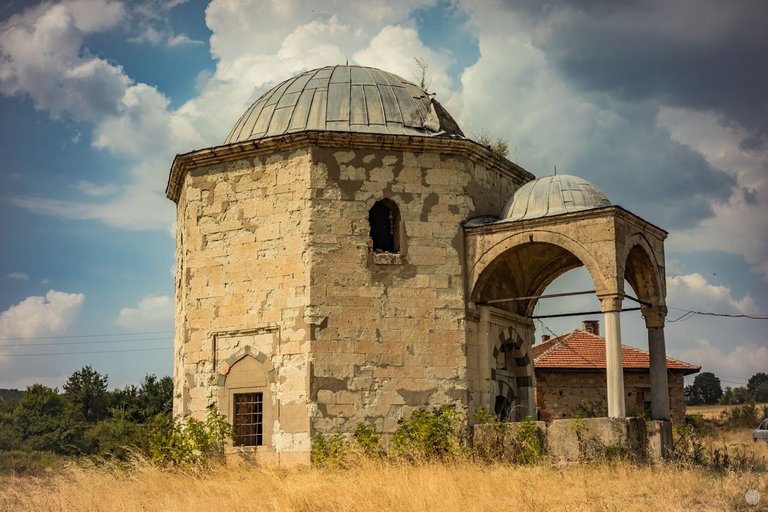
It features some amazing architecture, considering it was built around the XVth century!

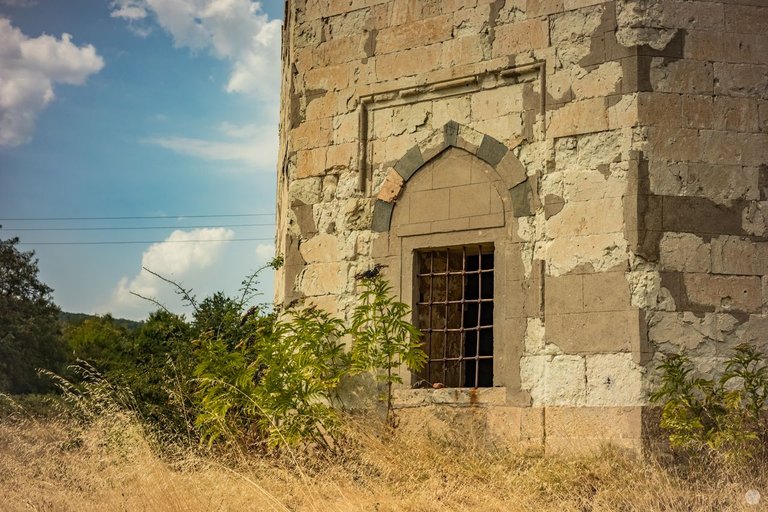
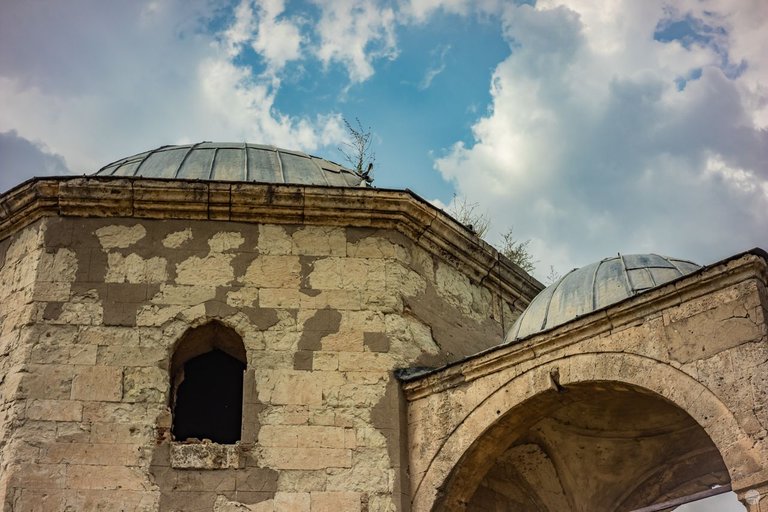
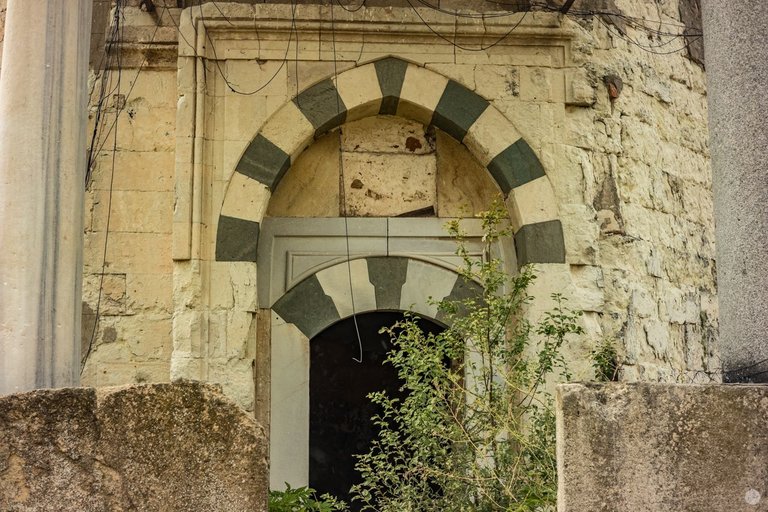

First thing first, you may ask, what is a "turbe"?
The general Wiki page at https://en.wikipedia.org/wiki/T%C3%BCrbe explains it as:
"Türbe refers to a Muslim mausoleum, tomb or grave often in the Turkish-speaking areas and for the mausolea of Ottoman sultans, nobles and notables. A typical türbe is located in the grounds of a mosque or complex, often endowed by the deceased. However, some are more closely integrated into surrounding buildings."
However, here comes the most interesting part as this Muslim building has been used as a Christian temple for some time.
It took me some time to find, what appears, an unique article, written by Father Maxim, and I will translate some parts of it for you that I find really interesting.
Let's enjoy the beauty of this, unfortunately abandoned, place of faith...

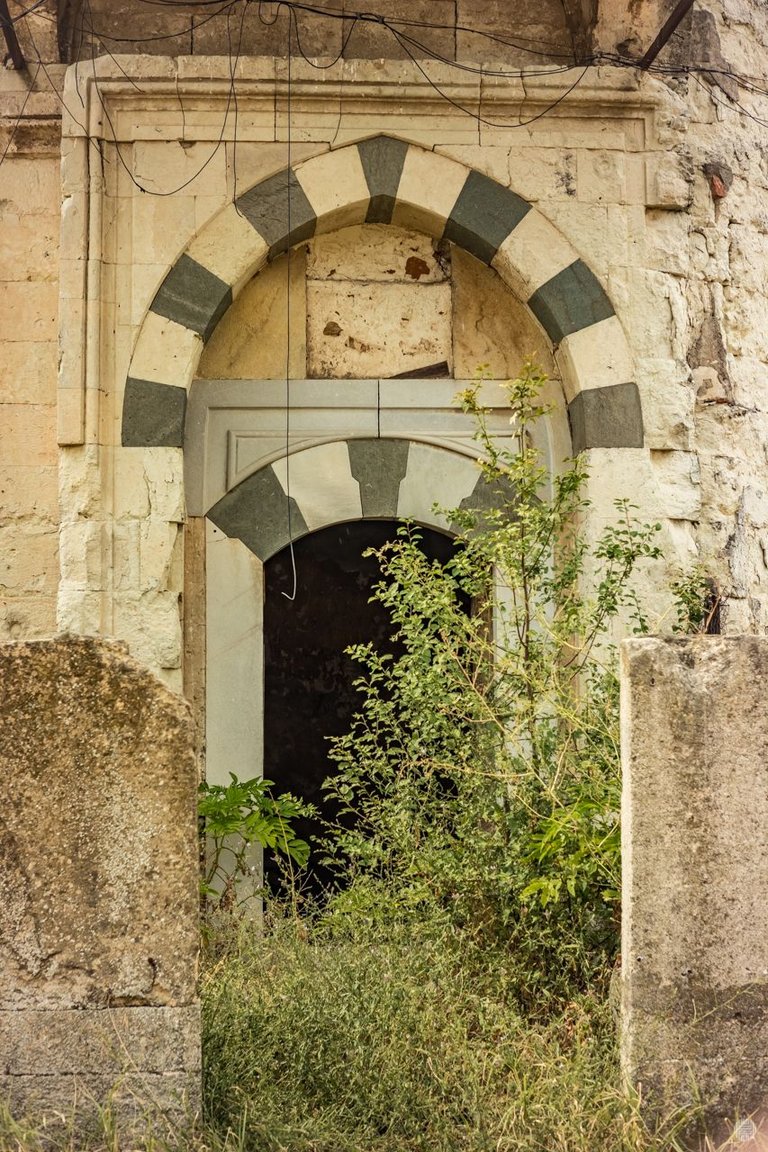
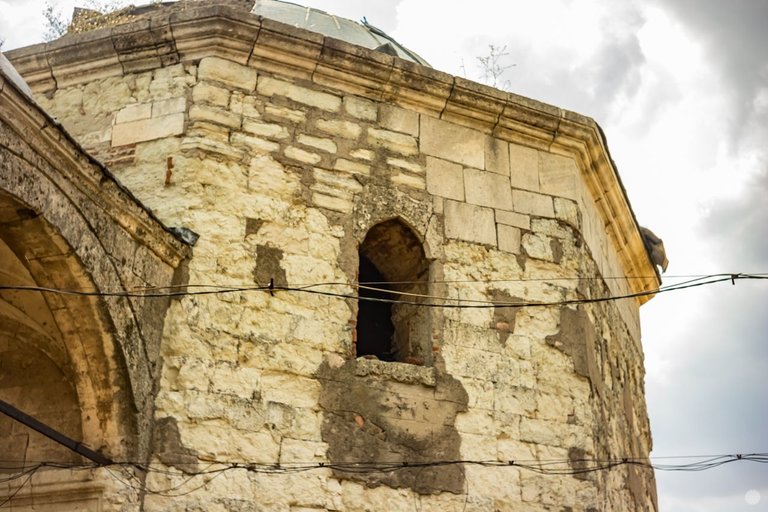

I could tell it had been built very carefully and the mason was a true master!
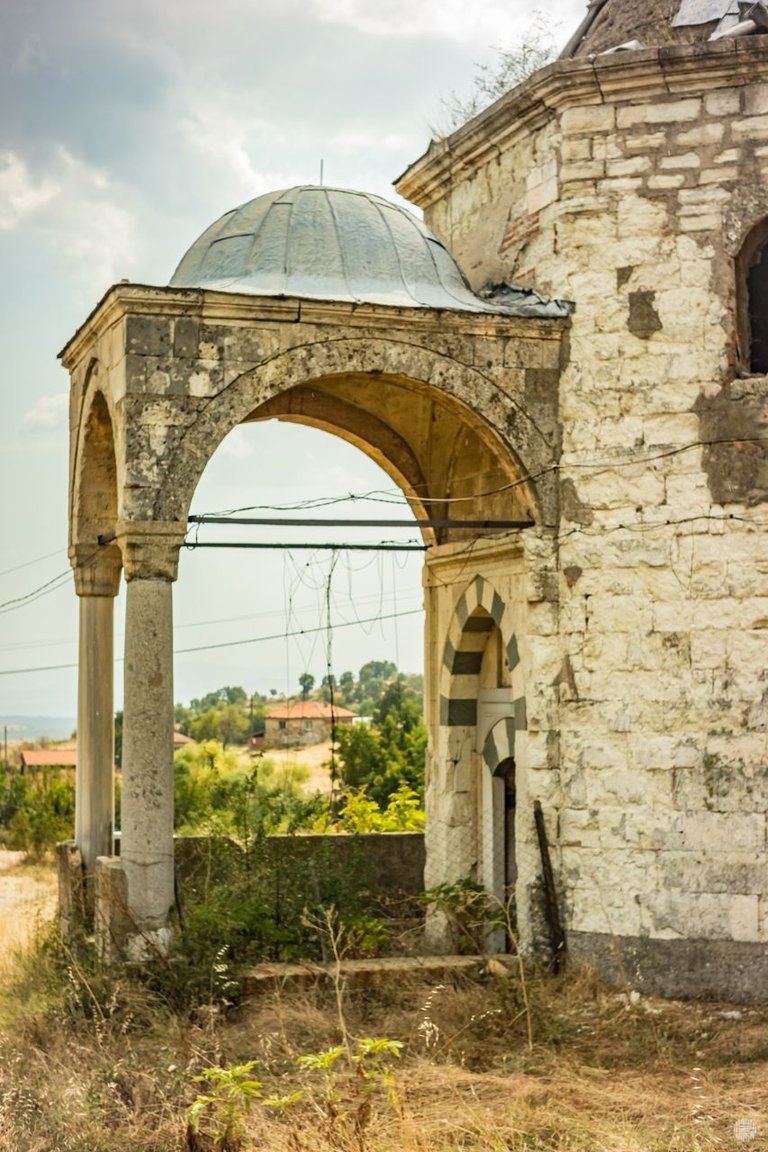

The signs of time, "eating" the stone blocks...
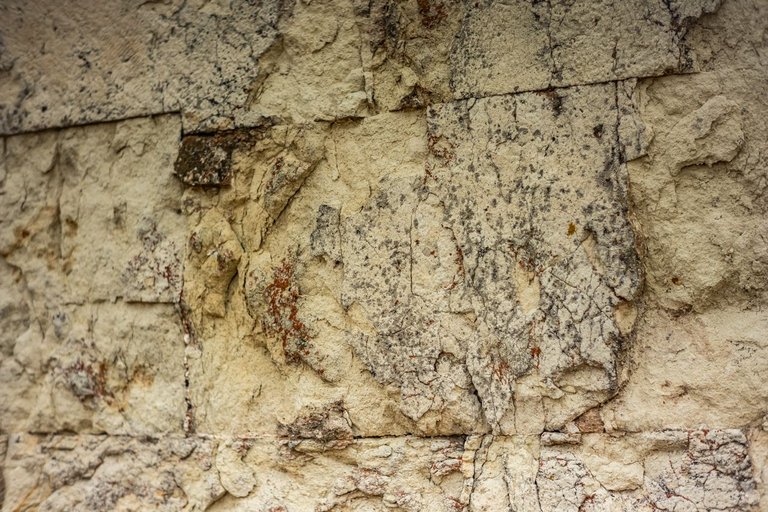

One window with a panoramic view...
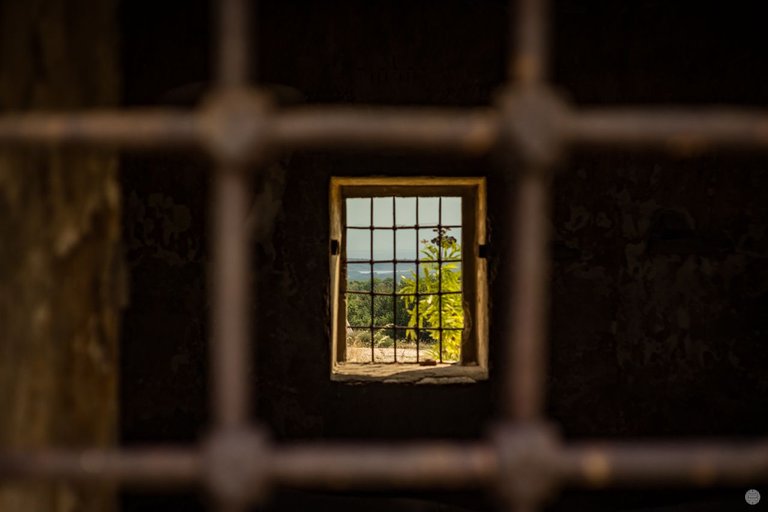

Lichen and moss on many spots at the Western and Norths sides of it.
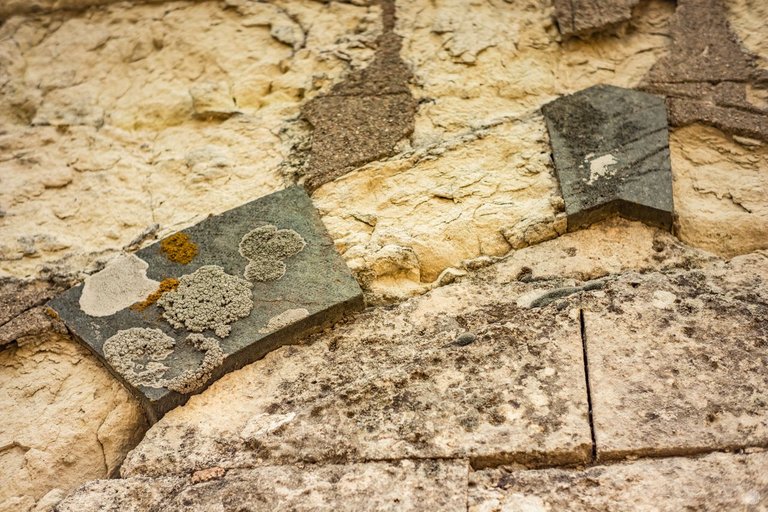

Well, I couldn't stop myself from taking a couple of my favorite sun diffraction effect pictures!
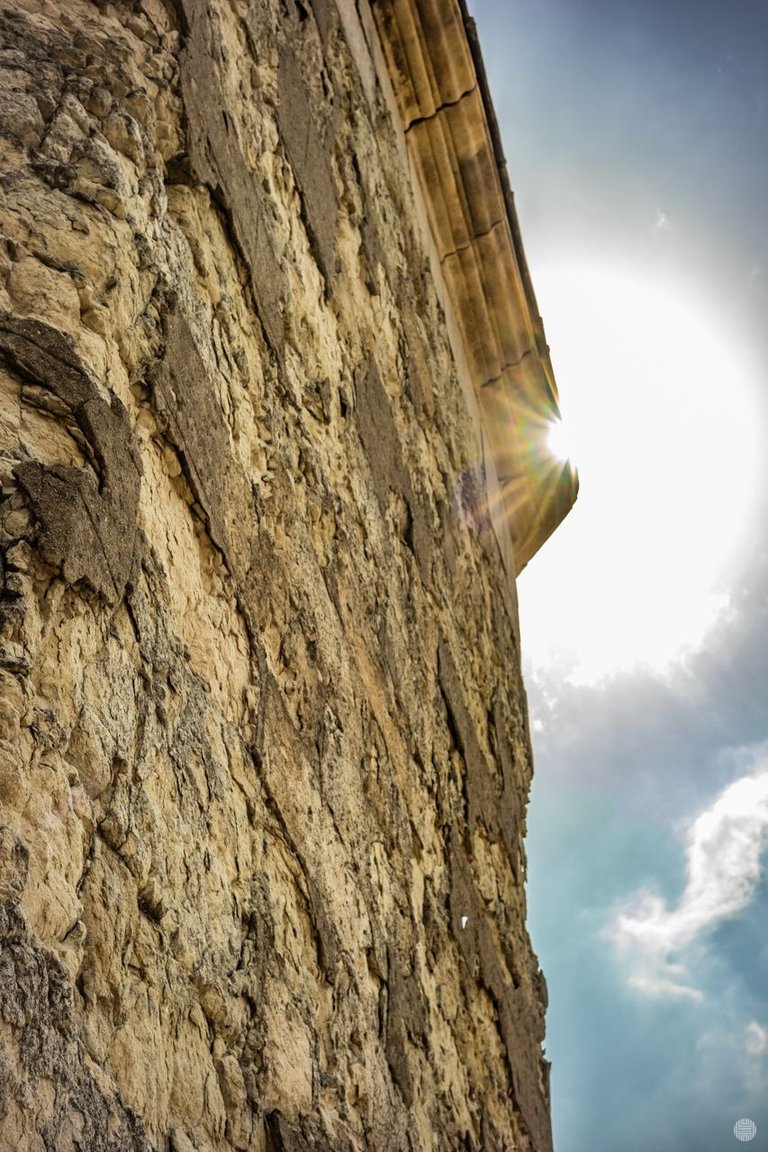
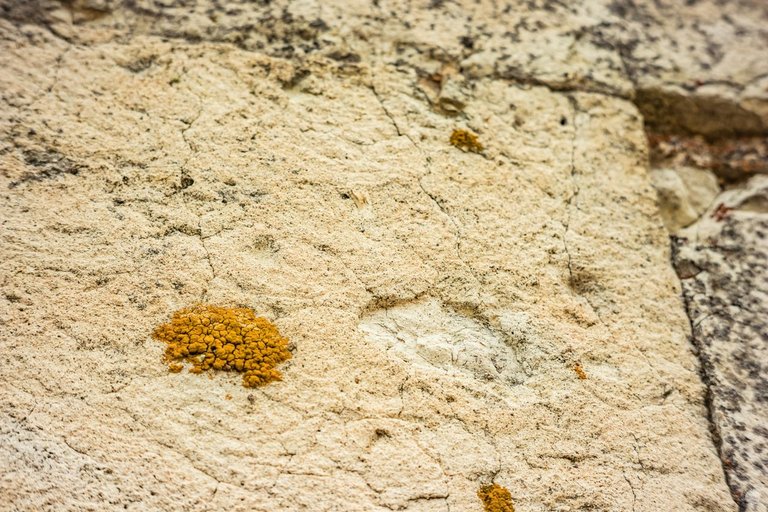

Ceilings in pretty nasty condition.
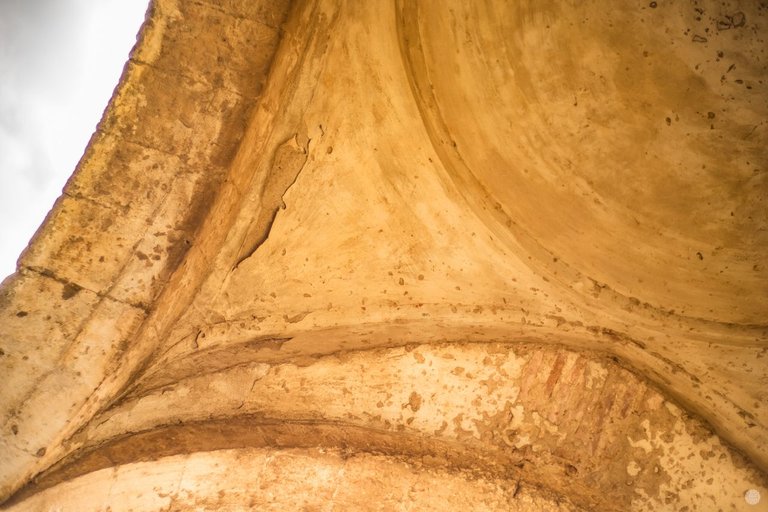
Now, I think, is the best time to translate some of the parts of that article I mentioned.
Here is its Bulgarian version: https://sakarnews.info/%D1%85%D1%80%D0%B8%D1%81%D1%82%D0%B8%D1%8F%D0%BD%D1%81%D0%BA%D0%B8%D1%8F%D1%82-%D1%85%D1%80%D0%B0%D0%BC-%D1%82%D0%B5%D0%BA%D0%B5%D1%82%D0%BE-%D0%B2-%D1%81-%D0%B1%D0%BE%D0%B3%D0%BE%D0%BC%D0%B8%D0%BB/
(yup, that happens with the websites put Cyrillic letters in the URL, LMAO)
You will understand why all those Christian symbols and signs are on the walls of a Muslim place of pilgrimage...
"Текето е построено през 1541 г. от самия Хазър баба, местен големец, за да го погребат, като почине.
Тюрбето представлява голяма осемстенна каменна сграда /въпреки, че традицията повелява този вид постройки да са седмостенни/, покрита с полусферичен купол. Височината му е приблизително 10 метра, а входът се намира на източната стена. Пред него има почти квадратно преддверие с полусферичен купол. Около свода на входа в миналото е имало надписи на османо-турски. Плочата на входа липсва, но въпреки разрухата на времето, личи красотата и майсторското напасване на двата вида мрамор при входа."
The turbe was built in 1541. from Hazer Baba himself, a local magnate, to bury him when he died.
The turbe is a large eight-walled stone building /although tradition dictates that this type of building should be seven-walled/, covered with a hemispherical dome. Its height is approximately 10 meters and the entrance is located on the eastern wall. In front of it is an almost square vestibule with a hemispherical dome. In the past, there were inscriptions in Ottoman Turkish around the arch of the entrance. The slab at the entrance is missing, but despite the ravages of time, the beauty and masterful fitting of the two types of marble at the entrance is evident.
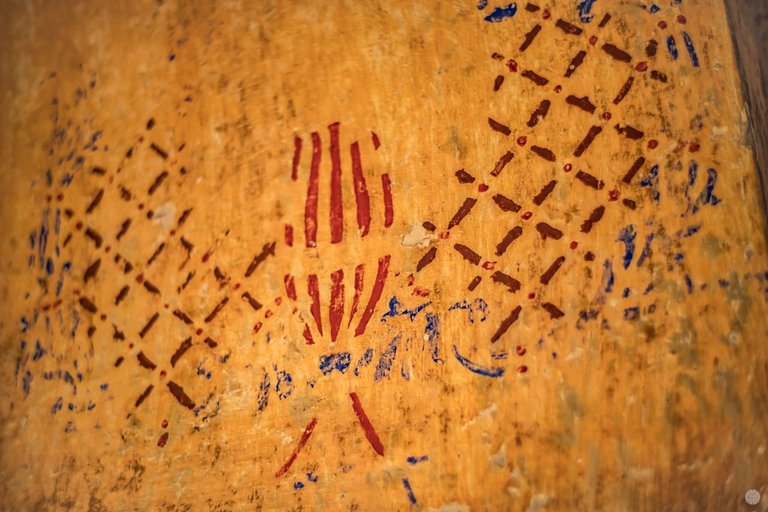
"Интересното е, че след Освобождението текето е превърнато в християнски храм, който работи като такъв до края на 50-те години. За целта, преддверието му е затворено и превърнато в апсида, а един от ажурните прозорци е бил превърнат във врата. Пода е с плочи. По стените и днес личат стенописи и кръстове. След като текето е върнато към предишното му състояние след 1959 г., църковните книги и утвар били прибрани от местните хора и не могат да бъдат открити."
Interestingly, after the Liberation, the turbe was converted into a Christian temple, which operated as such until the end of the 1950s. For this purpose, its vestibule was closed and turned into an apse, and one of the openwork windows was turned into a door. The floor is tiled. Murals and crosses can be seen on the walls even today. After the tekke was restored to its former state after 1959, the church books and utensils were taken away by local people and cannot be found.
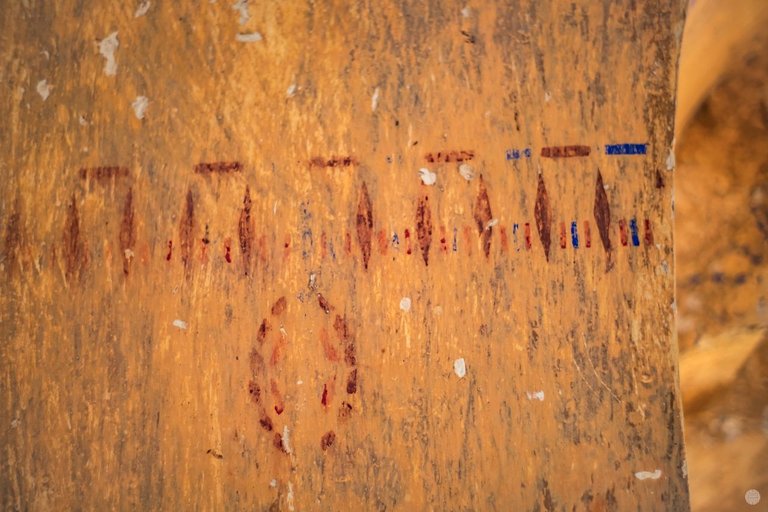
"Интересен факт е, че в градежа на сградата са използвани строителни материали, останали от римско време или дори от античността, като например мраморните колони на вратата, камъни и тухли, които са дебели около 4 – 5 см, и в градежа са свързвани с дебел пласт бял хоросан. Много е възможно или на самото място или някъде близо да е имало античен градеж като се има предвид, че наблизо, през местността Гюрджика, е минавал античен път. В землището на селището живот е имало още от тракийската епоха – на височината Теке баир (Текелията), между Богомил и Овчарово, е имало късноантични крепости и селища от ранножелязната епоха (XII-VI век пр.н.е.), тракийската и римската епохи. Там е открита и гръцка червенофигурна керамика, което подсказва за интензивни търговски отношения с древните гръцки градове по Егейския бряг."
An interesting fact is that the construction of the building used building materials left over from Roman times or even from antiquity, such as the marble columns of the door, stones and bricks, which are about 4-5 cm thick, and were connected in the construction with a thick layer of white mortar. It is very possible that there was an ancient building either on the site itself or somewhere nearby, considering that an ancient road passed nearby, through the area of Gyurjika. There has been life in the land of the settlement since the Thracian era - on the Teke Bair (Tekelia) hill, between Bogomil and Ovcharovo, there were late antique fortresses and settlements from the Early Iron Age (XII-VI century BC), Thracian and Roman eras. Greek red-figure pottery was also discovered there, which suggests intensive trade relations with the ancient Greek cities along the Aegean coast.
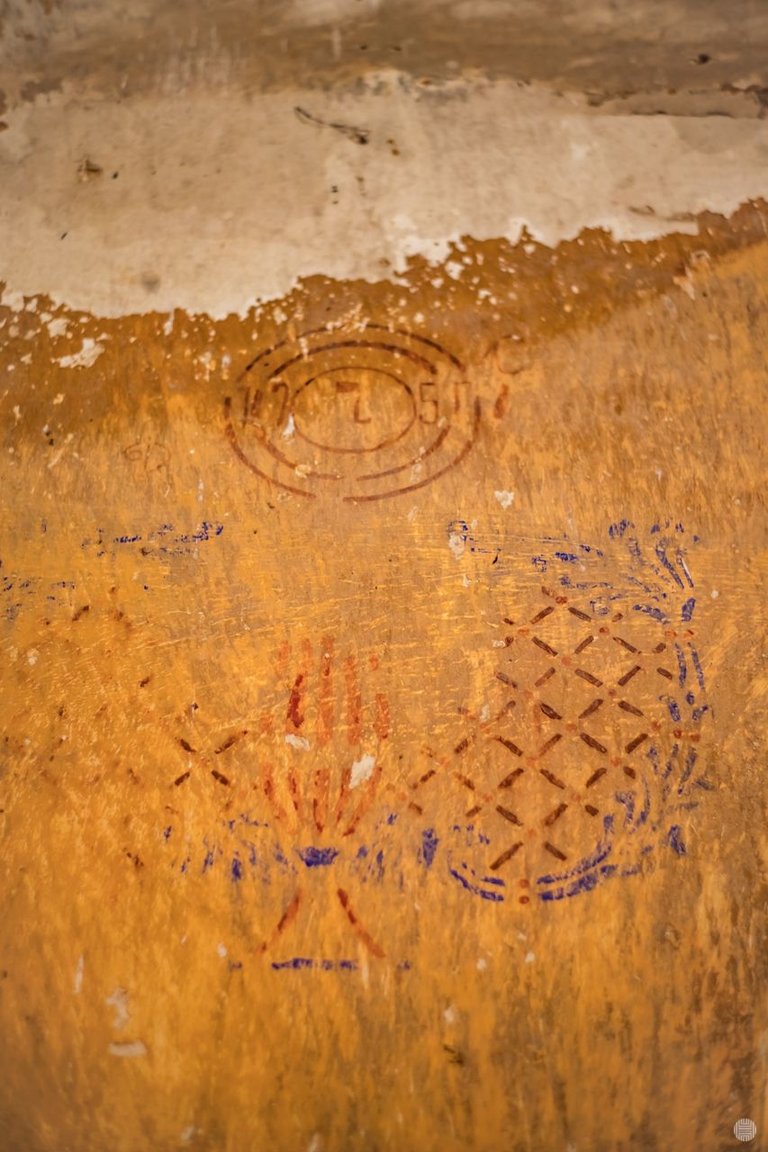
Now, something even more interesting!
"Жителите на селото са участвали в правенето през есента на курбан на „Курбан мост“, край новата винарна. В случаи на засушаване хората са излизали в м. Кекебаир, за да правят молебен за дъжд, а в празнични дни се събирали на Хорището, където ставали празничните хора."
The residents of the village took part in making a Kurban in the autumn on "Kurban Most", near the new winery. In cases of drought, people went out to the town of Kekebair to pray for rain, and on holidays they gathered at Horishteto, where the festive people got up.
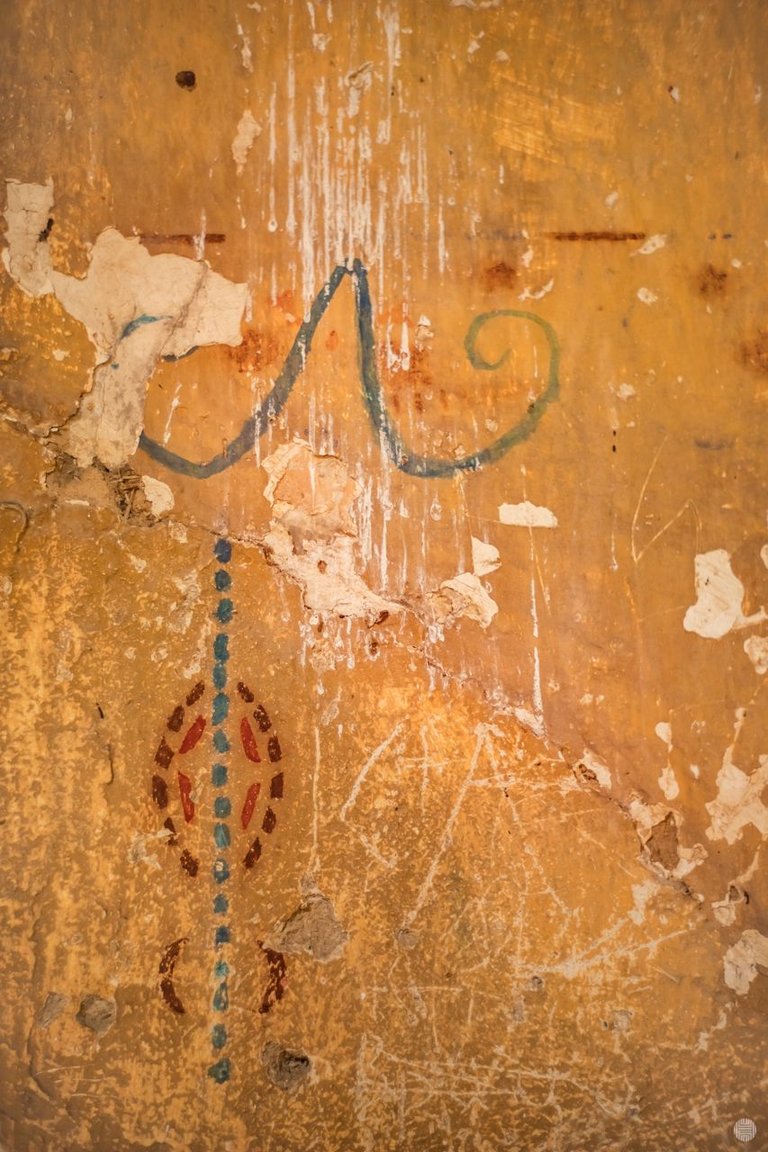
An eye opener, as I would say.
So all these signs and symbols, they are not just decoration.
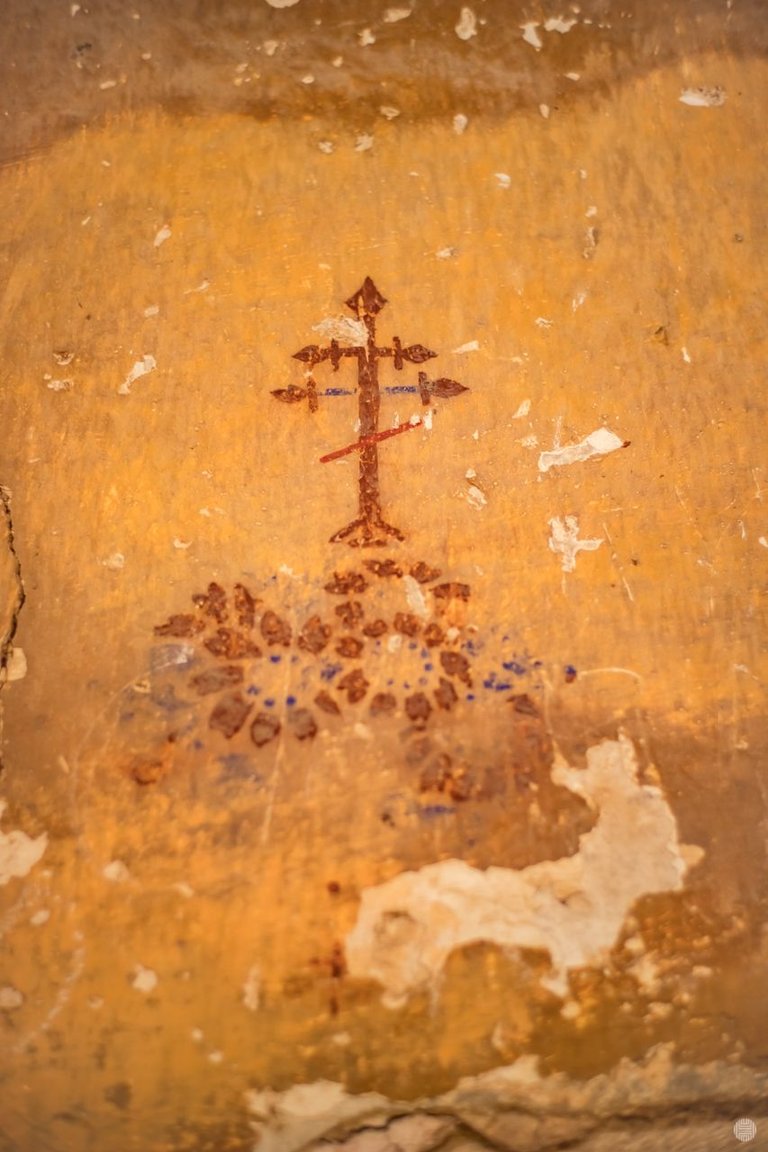

They are an integral part of the rituals and as I found traces of candles, matches, true, covered by dust, but not too much, that all means some people still believe this place has a power and come to light a candle, put a little prayer, or who knows what more.
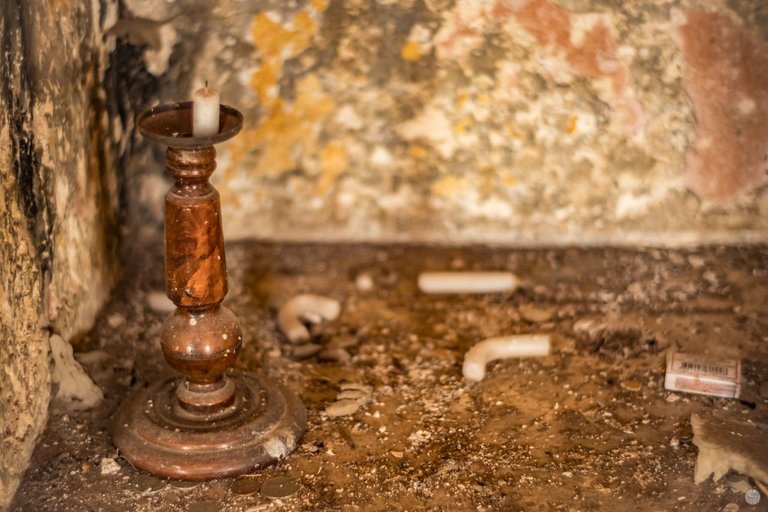
Too bad this all has been left to the elements.
Insects doing their part here, obviously...
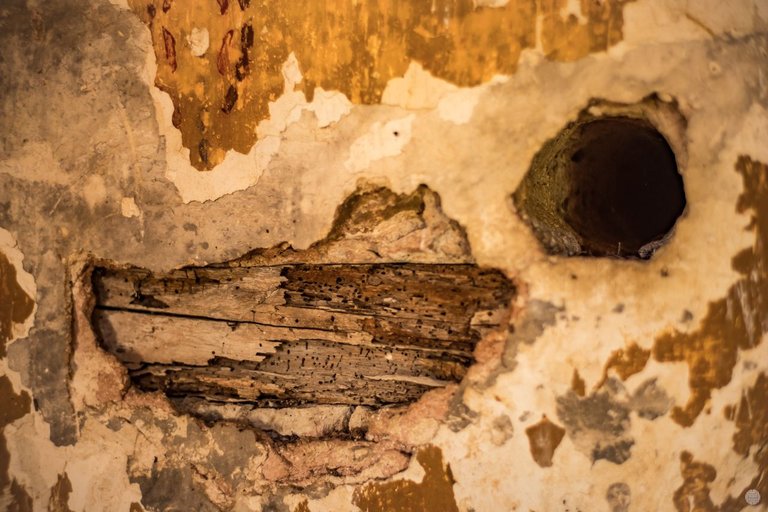
What happened in year 1994? It will remain a mystery, I guess!
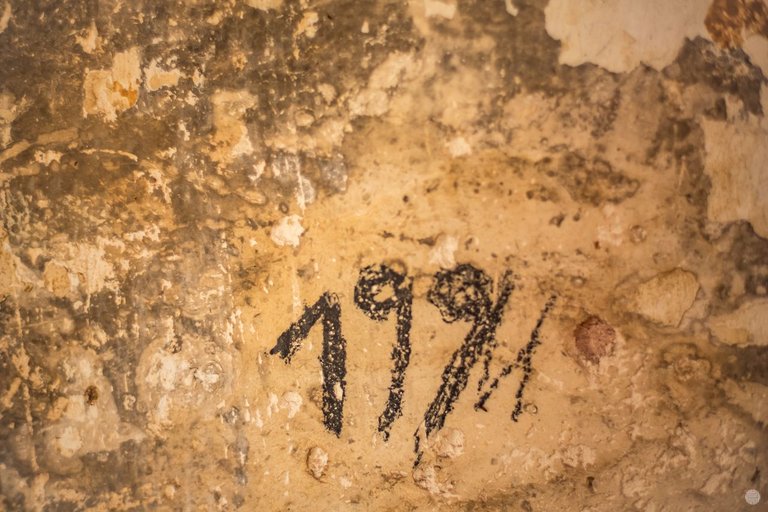

The light inside was beautiful, allowing me to "freeze" all that wall art, that, I am pretty much sure, will be gone in a few years.
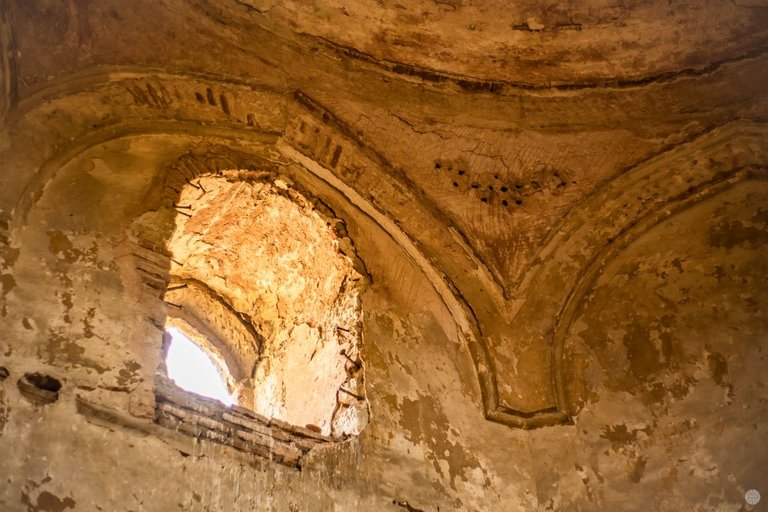
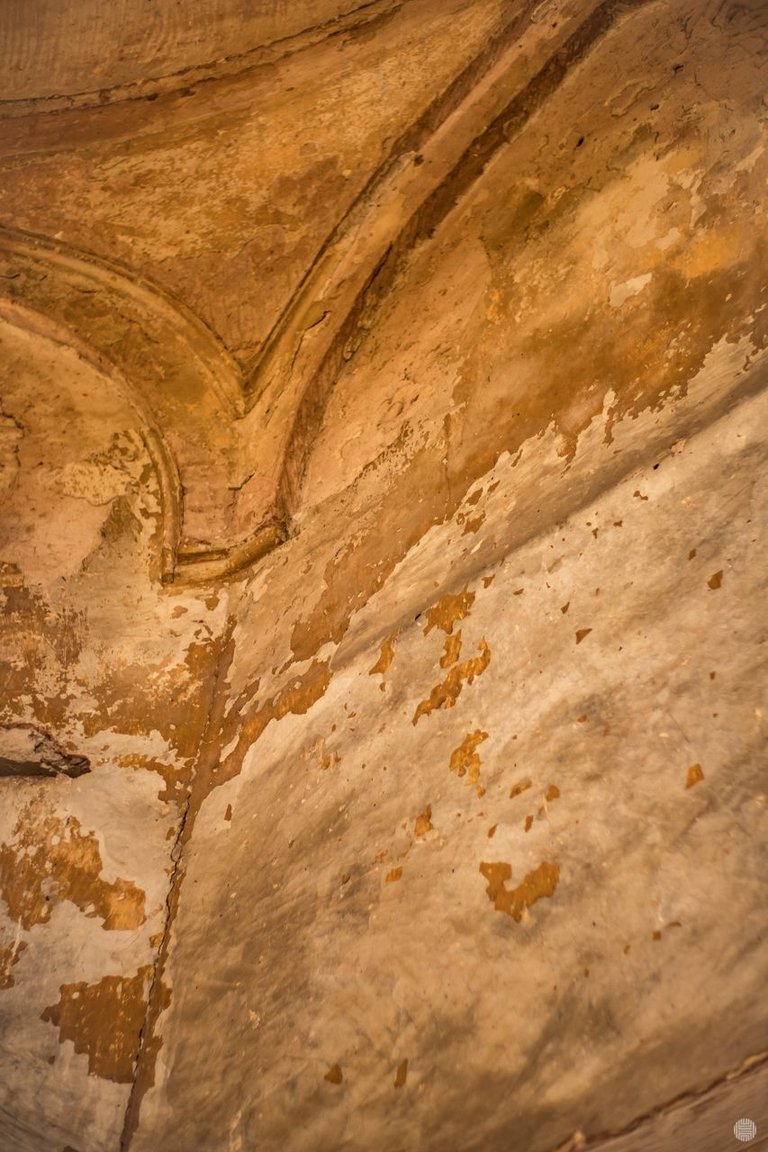

Another ritual corner.
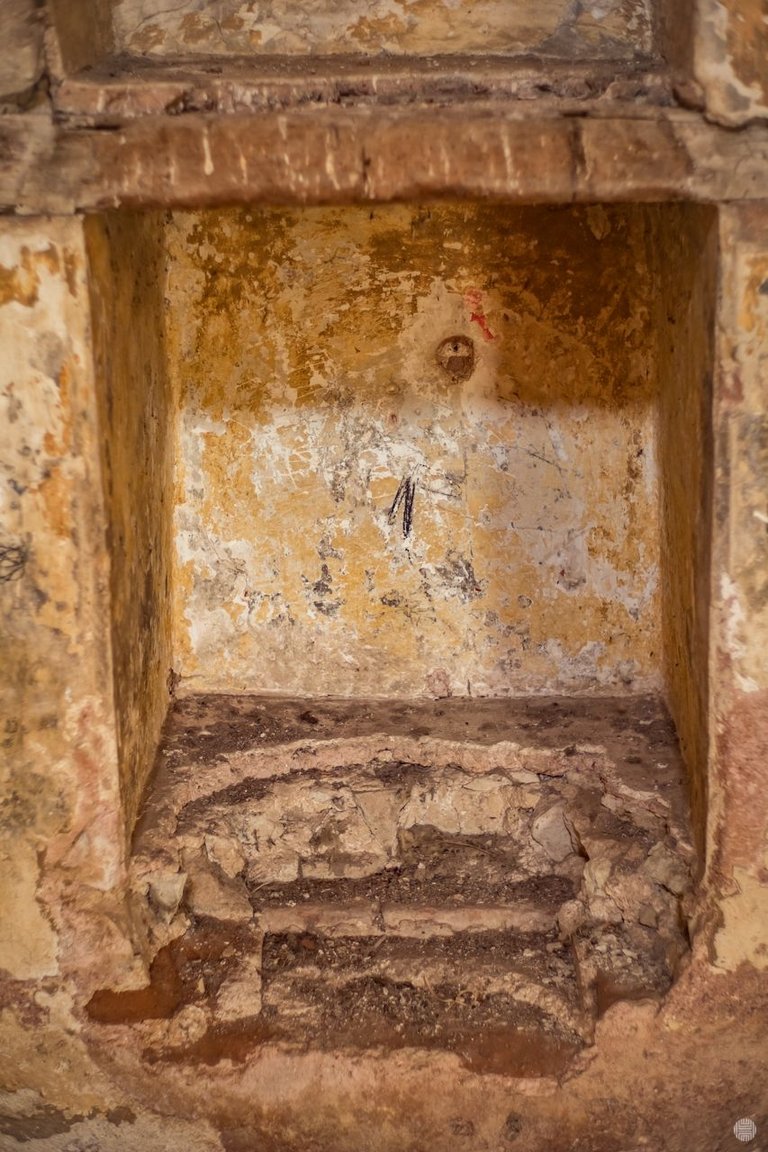
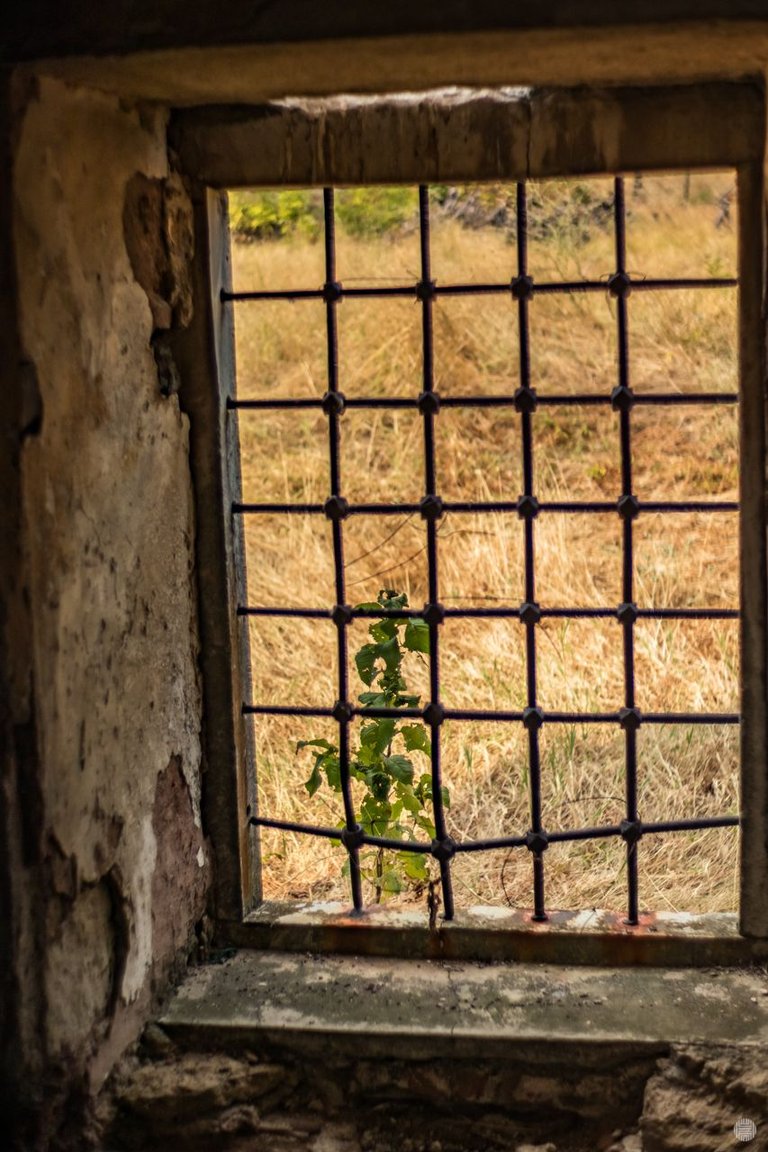

I really hope there is someone who could read that. I know 7 is a divine number and those probably visualizes something important. A cross and a ground /probably/ line over those seven items...
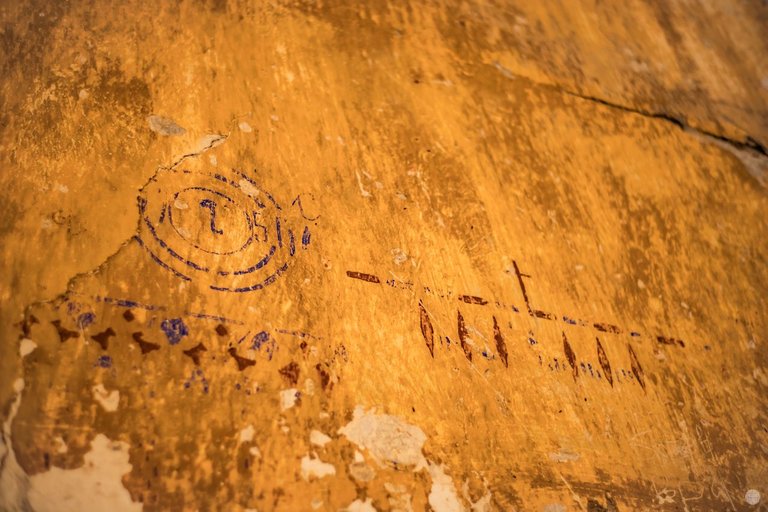

Or could this be a... treasure map? Nooo, I highly doubt that but let the child in me speak for a bit, right? ;)
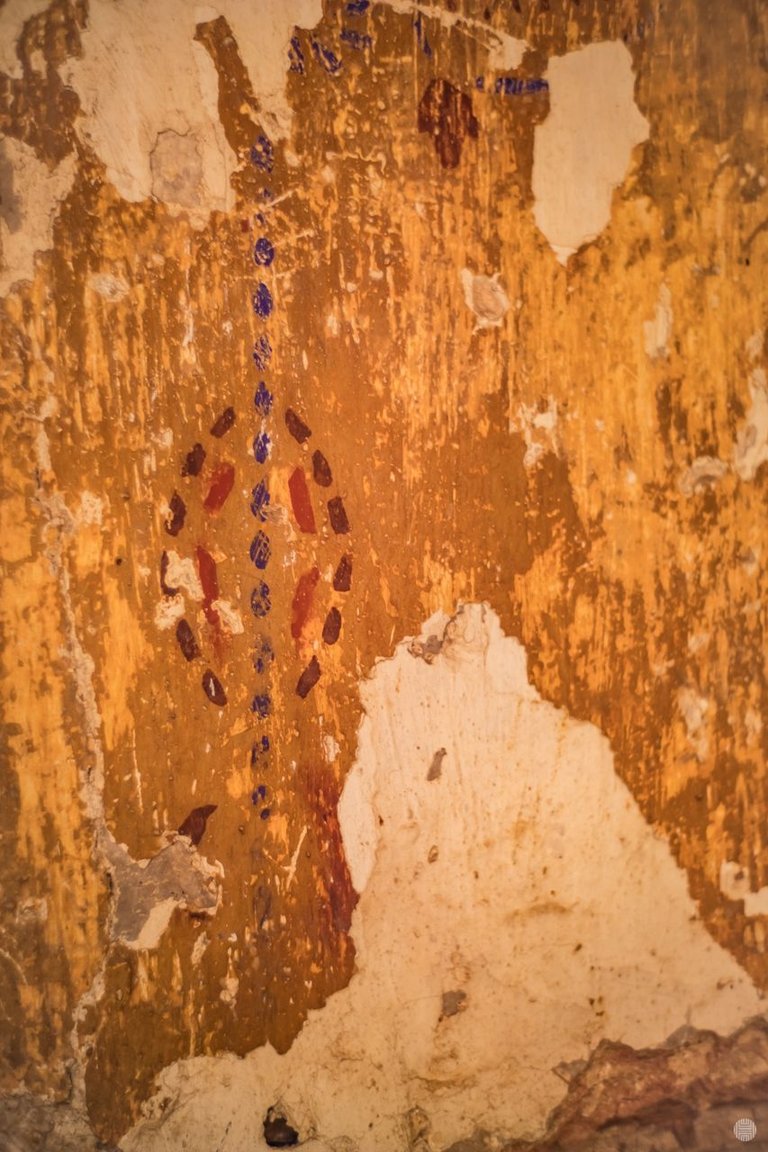

Someone even started a small fire here.
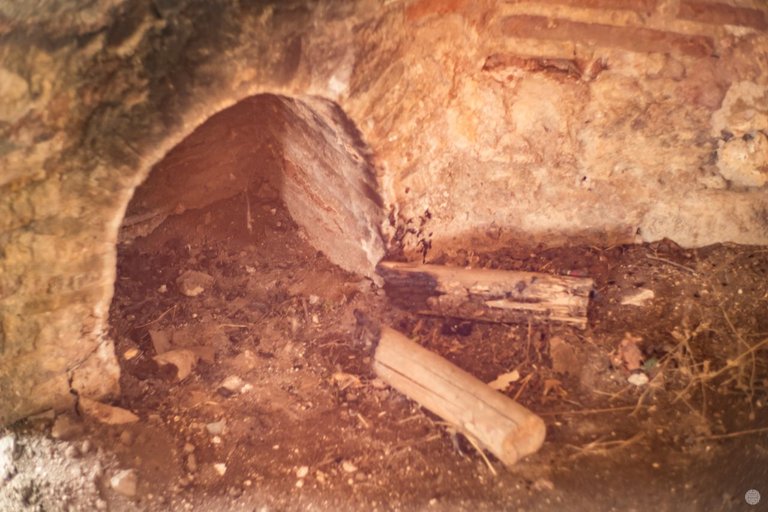
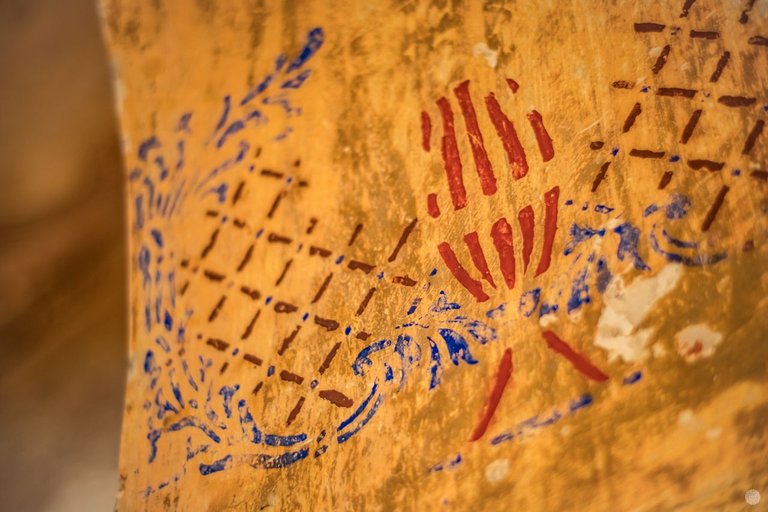
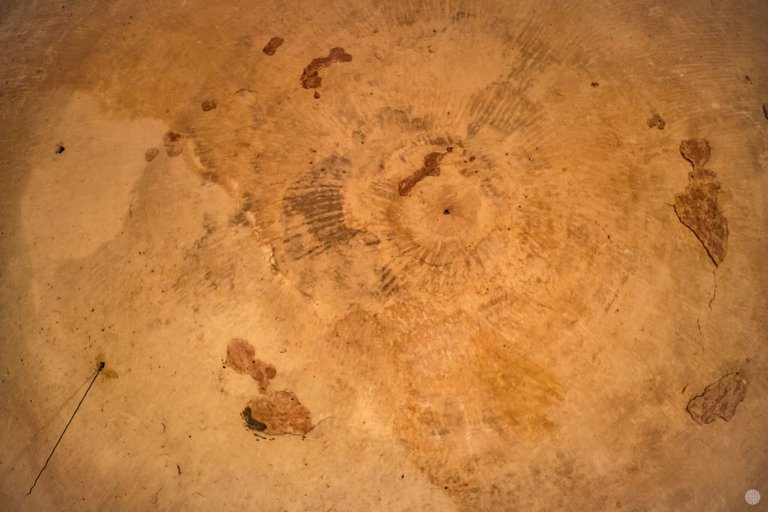

The combination of stone blocks with marble blocks with different colors... must have taken ages to cut those building blocks back then in 15th century!
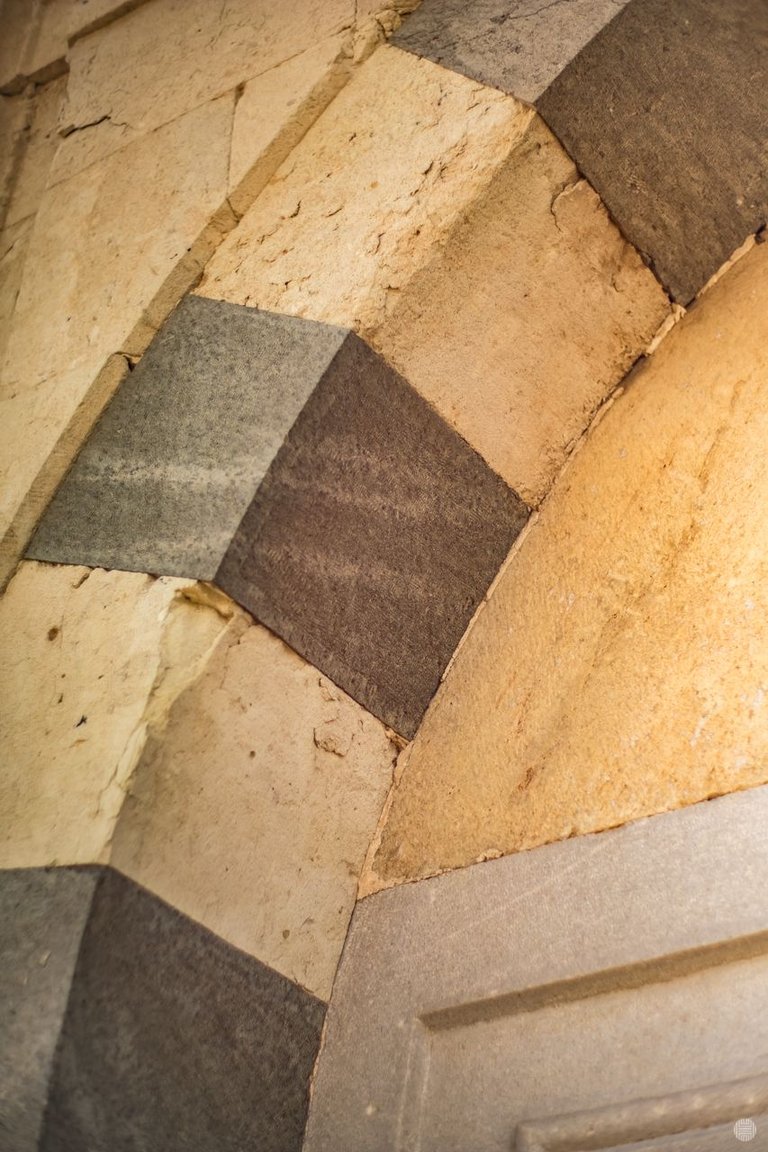
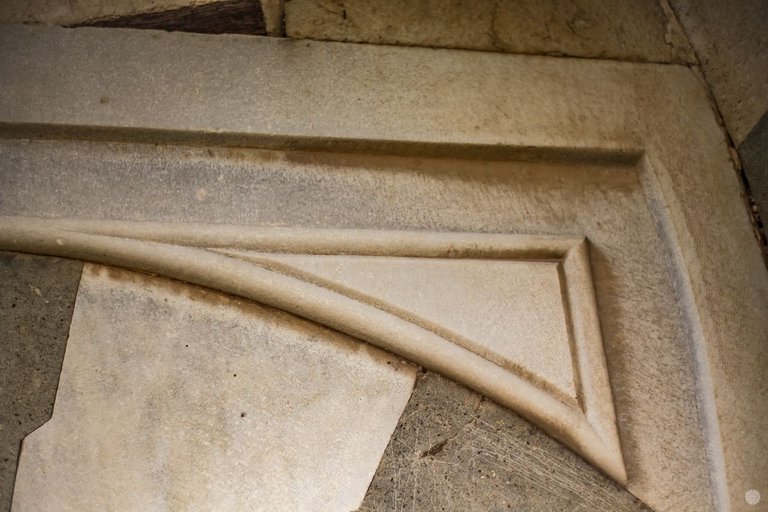

The sunlight always tempts me to create such pictures...
I really can't help myself! :)))
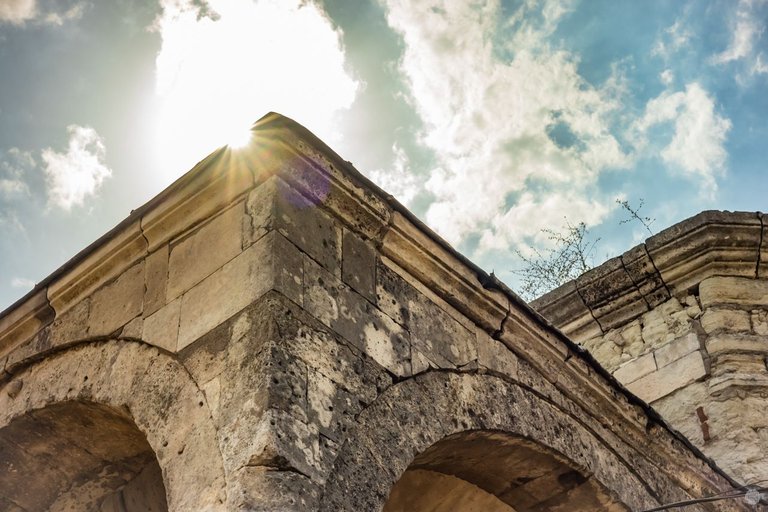

Now, I am pretty sure what this "modern" building purpose is, but for the sake of the positive experience, I will omit this information :)
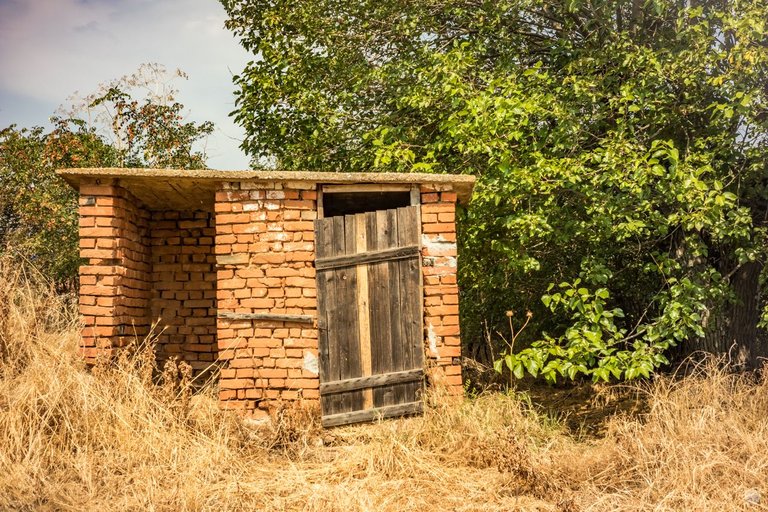

Time to see the turbe from another two angles outside and say goodbye!
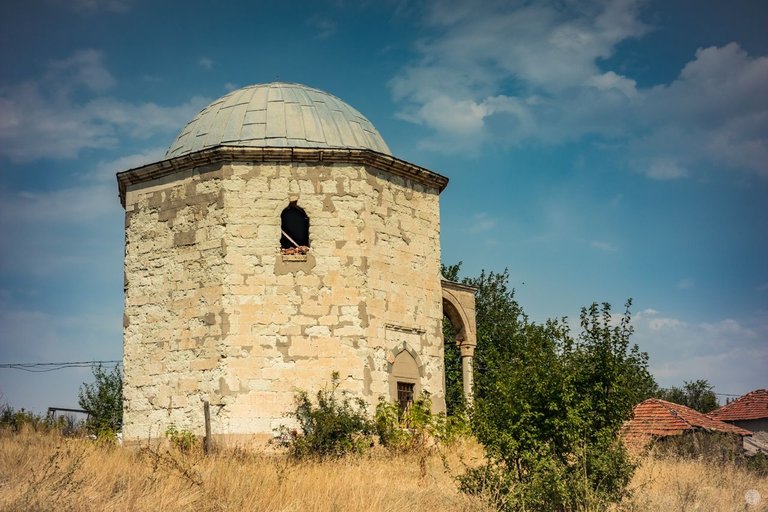

It felt really good to see and explore this location and really bad at the same time as I know it deserves to be preserved. Historic buildings should not be left to decay as we like them or not, they are evidences of our unwritten past.
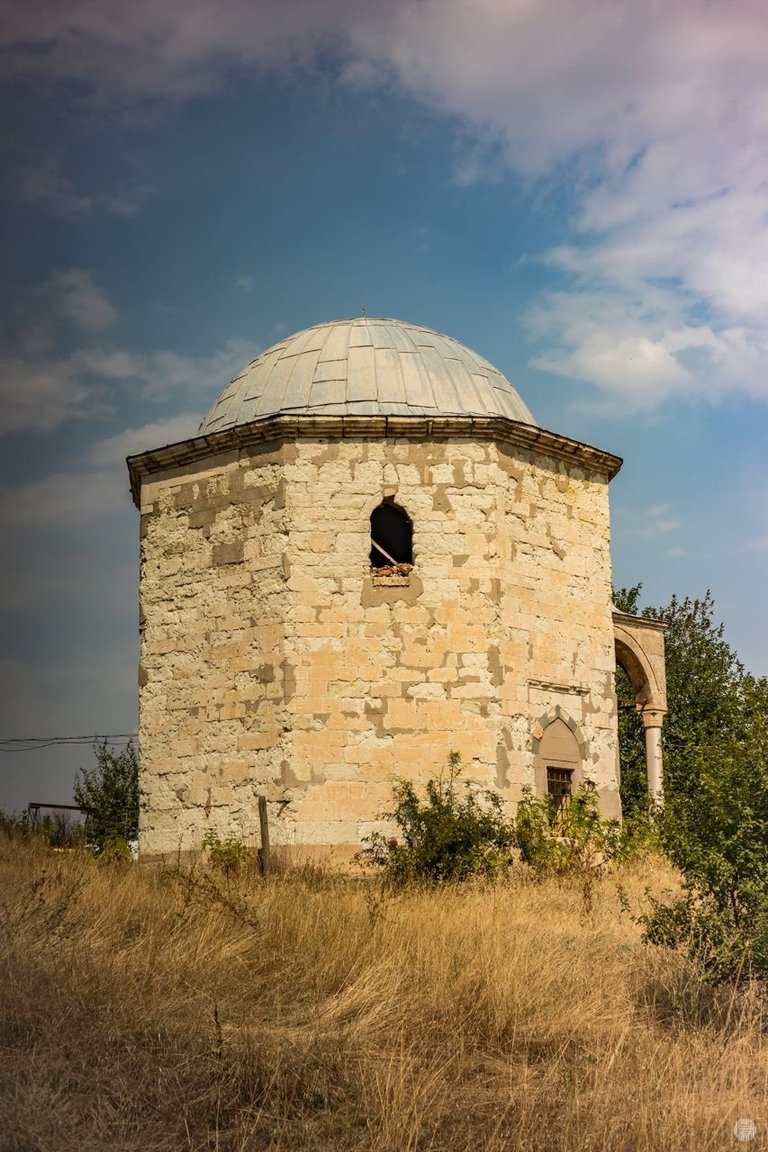

Buy my stock photos at Alamy: https://www.alamy.com/portfolio/112427.html

Buy my 1/1 exclusive NFTs on OpenSea: https://opensea.io/LightCaptured

Buy my stock photos at Adobe Stock: https://stock.adobe.com/contributor/206416265/lightcaptured

Follow me on Mastodon: https://mastodon.social/@lightcaptured (Decentralized social network for my insta-type selected photographs and short posts)

Copyright: LightCaptured
All the photographs, digital art and text in my posts, unless specified otherwise, are my own property and created by me.
If you wish to use any of my works, please drop me a line!
Have a great day!
Here is an uncomplete list of some of my equipment I use on a regular basis:
| Cameras | Canon EOS 5D Mark III |
|---|---|
| Canon EOS M5 | |
| Canon EOS 550D | |
| Lenses | Canon EF 16-35mm f/2.8L II USM |
| Canon EF 135mm f/2L USM | |
| Canon EF 100-400mm f/4.5-5.6L IS II USM | |
| Canon EF 50mm f/1.4 USM | |
| Canon EF-M 15-45mm f/3.5-6.3 IS STM | |
| Canon EF-M 22mm f/2 STM | |
| Tokina 11-16mm f/2.8 | |
| 7artisans 35mm f/1.2 | |
| Strobes | Dynaphos Speedster |
| Flashes | Metz |
| Tripods and Mono-pods | Manfrotto |
| Benro |
The divider I use in my posts I have created in Adobe Express.